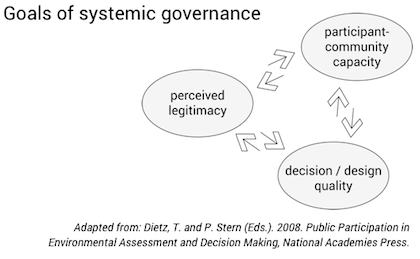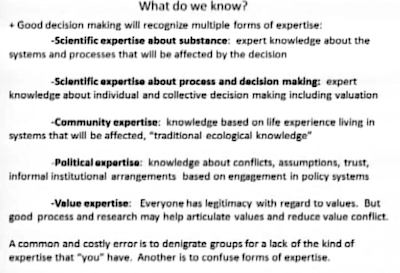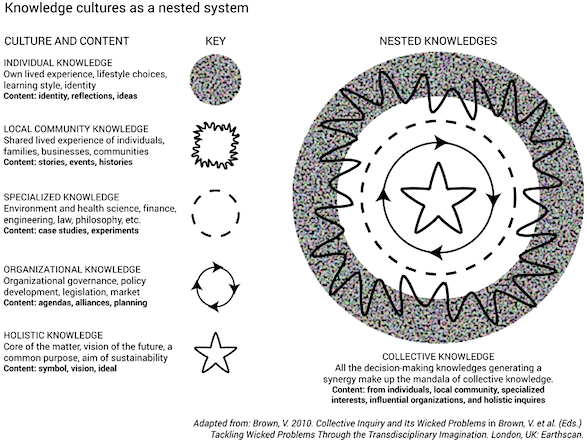“When done well,” emphasizes Thomas Dietz in this talk from last year’s U.S. National Academy of Sciences (NAS) colloquium on The Science of Science Communication,”public participation improves the quality and legitimacy of decisions and builds the capacity of all involved to engage in the policy process.”
I’ve written about last year’s colloquium talks by Daniel Kahneman and Arthur Lupia. A second colloquium in this NAS series begins Monday morning and will be webcast here.
Dietz co-edited the 2008 National Research Council (NRC) publication, Public Participation in Environmental Assessment and Decision Making, which surveyed and synthesized the literature on design and evaluation of public processes applicable to environmental issues like coastal and marine planning, smart growth planning, hazardous waste siting, and so on. In a nutshell, the NRC framework describes three public process goals: legitimacy, capacity, and decision quality.
Dietz highlights the challenge of developing “institutional forms — the organizations and the norms or rules — that we would use to make sure that these insights are used routinely.” I’ve similarly begun to think that the NRC findings might be included in a broader model for “systemic governance” — a phrase used by Ray Ison and Janet McIntyre-Mills.
Meanwhile, although Dietz insists that the NRC findings cannot be summarized in a single diagram, I’ve been using this one below.

One of Dietz’s slides that caught my attention was this one below on forms of expertise. Recognizing multiple forms of expertise or rationality or “ways of knowing” is critical to navigating the fact-value entanglements that are at the heart of governance issues.

For comparison, one model that comes to mind is Valerie Brown’s excellent visualization of nested knowledge cultures, adapted below from the book, Tackling Wicked Problems: Through the Transdisciplinary Imagination, which I reviewed in the journal Ecopsychology.


